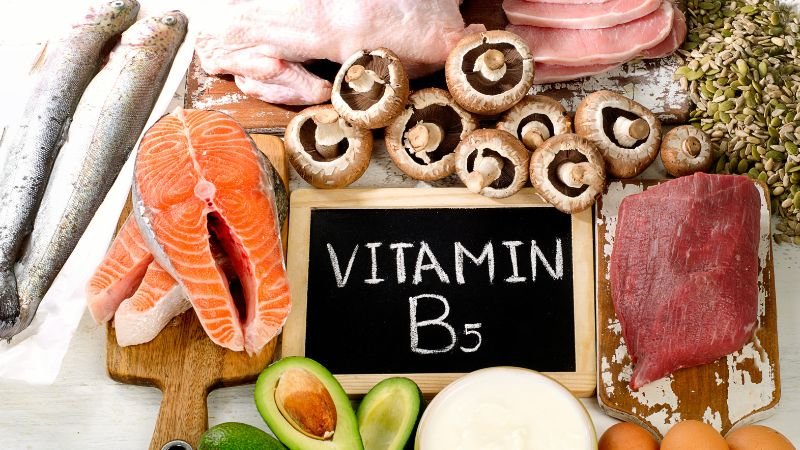Ingredient
Vitamin B5 (Pantothenic Acid): The Coenzyme of Metabolic Efficiency and Tissue Healing
Vitamin B5, also known as Pantothenic Acid, is a water-soluble B vitamin found universally in both plant and animal food sources (hence its name, derived from the Greek “pantothen,” meaning “from everywhere”). Its most critical function is its role as a precursor to Coenzyme A (CoA), a molecule essential for nearly all life-sustaining metabolic processes.
1. Coenzyme A: The Master of Metabolism
Coenzyme A (CoA), derived directly from Vitamin B5, is often called the “master molecule” of metabolism because it is required for the start of most metabolic pathways.
Fueling Energy Production
CoA is fundamental in the Krebs Cycle (or citric acid cycle), the primary pathway for generating energy (ATP) from carbohydrates, fats, and proteins. By optimizing this process, B5 supports sustained energy levels and overall metabolic efficiency.
Supporting Lipid and Steroid Synthesis
B5 is essential for the body’s ability to synthesize and break down fatty acids, cholesterol, and steroid hormones. This role ensures optimal hormonal balance and healthy management of blood lipids.
2. Supporting Dermal and Cellular Integrity
Pantothenic Acid is often used in cosmetic and dermatological applications due to its protective and supportive role in tissue structures.
- Skin Barrier Function: Vitamin B5 supports the skin’s natural barrier, aiding in moisture retention and promoting healthy, resilient skin appearance.
- Wound Recovery: Pantothenic Acid contributes to the body’s natural process of tissue repair and regeneration. This function is crucial for maintaining the integrity of the skin and mucosal linings throughout the body.
- Cellular Defense: By supporting healthy cellular function and energy transfer, B5 contributes to the body’s natural resilience against environmental stressors.
3. Adrenal and Nervous System Wellness
Vitamin B5 plays a supportive role in managing the body’s response to stress and supporting neurological health.
- Adrenal Function: It is necessary for the production of adrenal hormones, helping to support the adrenal glands in maintaining the body’s natural stress response system.
- Neurotransmitter Synthesis: B5 supports the synthesis of key neurotransmitters, which are essential for healthy cognitive function and nerve signal transmission.
Key Takeaways for Supplementation
| Feature | Function |
|---|---|
| Primary Benefit | Coenzyme A Synthesis, Metabolic Efficiency |
| Compliance Focus | Supports Structure and Function (Not a Treatment) |
Explore Deep Dive Articles
- Advanced Cellular Protection & Systemic Defense: Nurturing Health at the Core
- Metabolic & Cardiovascular Health: Supporting Optimal Energy and Circulation
- Cognitive & Musculoskeletal Vitality: Supporting Mind, Nerve, and Movement
Disclaimer: This article provides nutritional information and is not intended to diagnose, treat, cure, or prevent any disease.


Recommended Products
Advanced Systemic Defense Kit
Economical Liver Function Support
Polliton Pollitin Graminex Pollen Extract
Wheatgrass Pollitin Graminex Pollen Extract